Data is the lifeblood of any enterprise. A data-driven company can quickly identify problems, create value, and take action. However, your company’s data is only as good as the insights it produces. To be successful, your business needs to be constantly and constantly analyzing and responding to your most important data trends. But, this can be a difficult process without the proper tools and methods that can turn the data into actionable insights.
Business intelligence is the process of extracting information from various data sources, creating reports, and analyzing data to help you understand your operations. BI is typically used for strategic planning, marketing, operations, finance, and quality control. Business analytics is the process of extracting information from your data, creating reports, and analyzing data to help you make decisions.
In recent years, BI has been seen as a collection of tools for the data geeks, while the analytics part is more of a user-friendly, business-focused approach to analyzing data. While both of these are important, a mix of both approaches can best serve your business.
Before we clarify the differences between the two, let us begin with some definitions.
What is Business Intelligence?
Business intelligence (BI) is the process of measuring, monitoring, and analyzing business operations to improve the efficiency of the business. BI is typically integrated into strategic decision-making, corporate governance, and corporate reporting to ensure that corporate activity is measured against the company’s business objectives.
Business intelligence is the term used to describe the collection, analysis, storage, and organization of data used to improve overall organizational performance. The term usually refers to high-level data collection and analysis programs, which are used to support business executives in making decisions, solving problems, and performing other tasks. For companies that are serious about their customers and their bottom line, business intelligence is a critical tool for making informed decisions and optimizing business processes.
What is Business Analytics?
Business analytics is a valued and ever-evolving discipline. It has evolved from simple spreadsheets to complex business intelligence systems that are becoming an indispensable tool for businesses of all sizes. As the world becomes increasingly data-driven, the opportunities for businesses are endless.
Business analytics is a branch of information technology that aims to provide businesses with information that will help them make better decisions. It normally involves the collection, analysis, and visualization of data from a variety of sources. Business analytics is the use of data and analytics to help make informed business decisions. It is becoming increasingly important for organizations of all sizes to use analytics to make better decisions about their business. Business analytics can help companies make smarter decisions like improving customer satisfaction, boosting sales, and gaining efficiencies. It also allows organizations to get more precise on the information that they get, which is critical for success in today’s competitive business environment.
What Is The Difference Between Business Intelligence And Business Analytics?
Business Intelligence (BI) and Business Analytics (BA) describe a class of software tools used in business and industry to analyze and understand data. Data is collected about an organization and used to make decisions and gain insight on how to improve operations and gain more market share. BI and BA differ in the type and scope of the information collected and analyzed.
Machine learning is a subset of artificial intelligence that has helped revolutionize the way we use computers. From image recognition to autonomous vehicles, machine learning can be used to solve many problems that are too complex for humans to handle. Business intelligence is the use of machine learning to analyze historical data to find patterns and trends. Business analytics is the process of extracting the value of the machine learning solutions by interpreting the results for decision-making purposes.
Final Words
In conclusion, Business Intelligence is concerned with the strategic direction of the business, while Business Analytics focuses on optimizing operations to make the business better. Business Intelligence links the core business activities together to maximize profits, while Business Analytics uses past data to guide decision-making.





